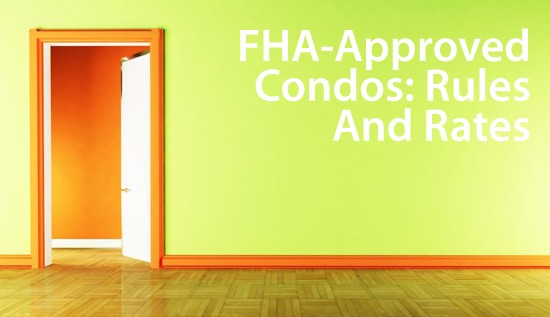Fannie Mae Condo Approvals Fannie Mae Approved Condominiums
Post on: 4 Май, 2015 No Comment

When it comes to securing a mortgage loan on a residential property, good credit history and documentable income play an important role. But these common underwriting factors alone may not be enough for home buyers and home owners looking for financing on condo properties.
All the three major government agencies (Fannie Mae, Freddie Mac, FHA) that provide conventional mortgage loans have tightened their lending and underwriting guidelines related to condominium buildings. These new condo lending guidelines are making financing extremely difficult for buyers and residents of several condo buildings around the nation. The extreme impact of these new regulations is being felt by states like Florida, Arizona and New York that have already been hard hit due to the still continuing housing and economic crisis.
Fannie Mae is the largest buyer of residential home mortgages originated by mortgage lenders and banks. Their guidelines, procedures and requirements influence the residential mortgage lending market more than any other entity, including their smaller rivals Freddie Mac and FHA. In a bid to strengthen their balance sheet, Fannie Mae initiated new rules regarding lending on condo properties. These measures are being taken to counteract the surging loan defaults in the condominium market.
For purchasing or refinancing a condo, the condo project must have already been approved by Fannie Mae. Otherwise, it becomes extemely difficult to secure the necessary financing as most of the conventional residential lenders sell their loans to Fannie Mae.
Since the housing crisis began, the role of FHA in insuring residential loans has become more prominent. Only buyers and owners of units in condo projects that have FHA approval can avail FHA financing. Due to the stricter screening and condo approval guidelines, more than 2,200 buildings with older approvals have lost their status just recently. And another 23,500 condominium projects that may not meet the current guidelines may also lose their approval status in the very near future. As a temporary reprieve, FHA granted extensions on prior condo approvals.
The complete list of condo projects and buildings approved by Fannie Mae and FHA can be found on their respective websites. Fannie Mae Condo Financing Guidelines.
Fannie Mae Condo Approval Guidelines
- FNMA lending guidelines are very strict when it comes to condo association arrears. Fannie Mae doesnt buy any new purchase loan made on a condo unit located in a project where more than 15% of the current owners are 30 days or more late on their maintenance fees. This rule doesnt apply to owners looking to refinance an existing Fannie Mae mortgage loan.
- Before the new guidelines, Fannie Mae required at least 51% of the units in a new condo development to either be sold or under contract to allow financing of any units. But right now, they increased this number to 70%. Fannie Mae also requires existing condo associations to set at least 10% of their annual budgets in reserve for maintenance and upkeep. These new stricter guidelines have also been adopted by Freddie Mac.

Exceptions: The guidelines can be waived if the mortgage lender makes a proper case documenting the nature and circumstance for seeking the waiver. The condo waivers are often approved. In 2010, out of about 1,700 condo buildings that sought the waiver, 93% were approved.
FHA Condo Approval Guidelines
- The F.H.A. meanwhile, requires that at least 50 percent of a building’s units belong to owners who occupy their units, and that no more than 10 percent be owned by a single investor.
- New buildings become eligible for FHA financing if at least 30 percent of the units get sold. This is much lower than the stringent 70% required for Fannie Mae approval of new condos.
Due to mismanagement and rising vacancies, many of the buildings are faltering when it comes to the reserve requirements.
As the housing market became stagnant, may condo owners who wanted to sell have been unable to do so. Many of them have instead opted to sublet their units while they await for better housing market conditions. While this may be the best option for the condo owner, it certainly isnt for other building occupants looking for FHA financing. A lot of the buildings are losing their FHA approval as the owner occupancy is lower than the require level of 30%.
Before approaching a lender for refinancing a condo unit, owners should ask their homeowners association for copies all documents pertaining to budget and finances. They also will need to get a detailed financial questionnaire completed, as it is commonly required by mortgage lenders providing condo financing.
A condo building that meets an agencys requirements can hire a qualified, experienced real estate lawyer or broker to submit the necessary paperwork inorder to gain the approval status.














